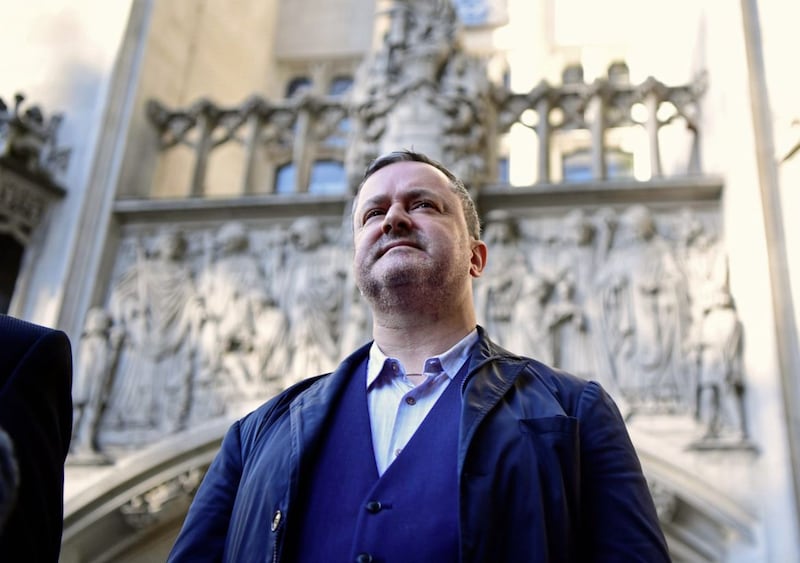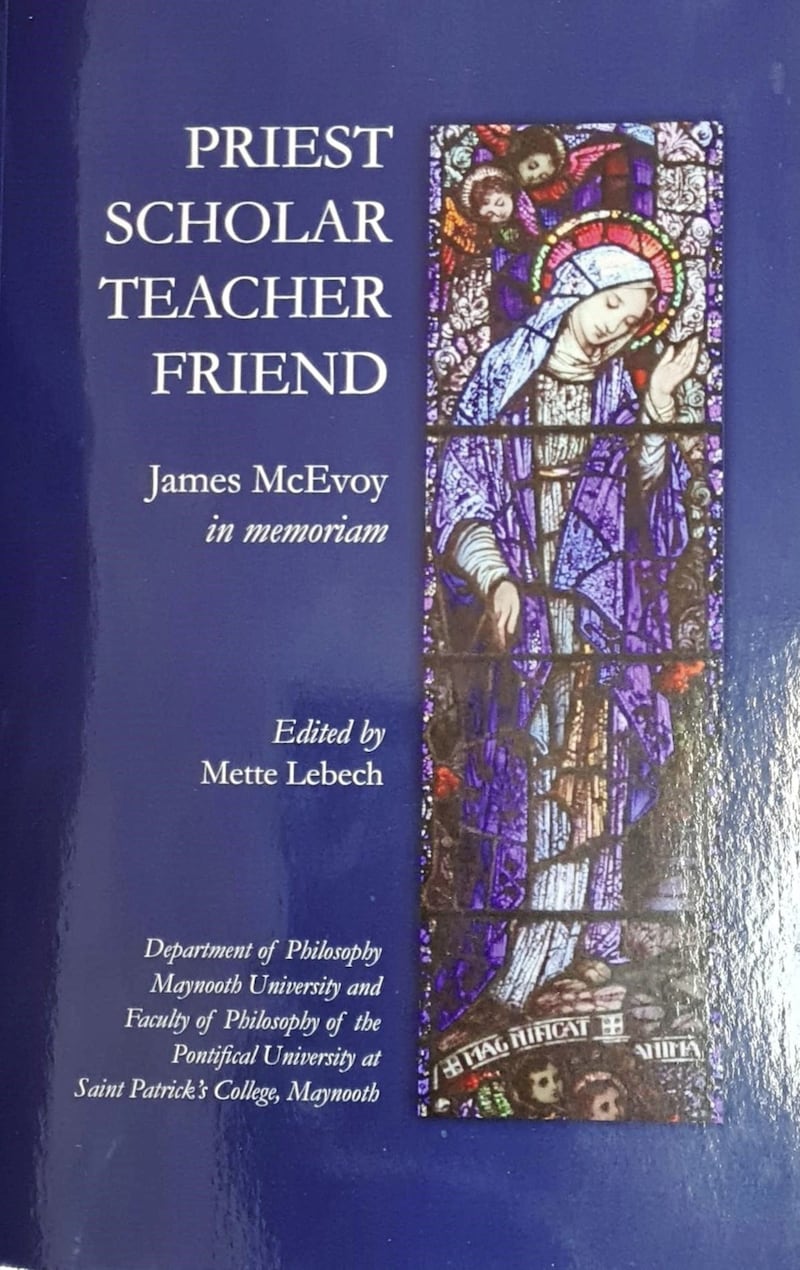ON May 19 2015 Presiding District Judge Isobel Brownlie handed down judgment for the plaintiff in a legal action brought against Ashers Baking Company Ltd (the first defendant) and two of its directors.
This case, which was reviewed by the Northern Ireland Court of Appeal in 2016 and the United Kingdom Supreme Court in 2018, was said by Professor Stephen Williams, honorary professor of theology at Queen's University Belfast, to have generated "serious [underlying] questions about the place of conscience in the public square" (
[ The Irish News, October 8 2015Opens in new window ]
).
His assertion itself invites some reflections of our own on the material facts of the Ashers case, the legal issues to which they gave rise, the Supreme Court judgment and the wider questions which underpin a philosophico-legal controversy whose human rights ramifications will be closely scrutinised by the Strasbourg court.
The pertinent facts were summarised by the District Judge in the following terms: "The court heard that Gareth Lee is a gay man who is associated with an organisation which seeks to increase visibility of the lesbian, gay and bisexual and transgendered community in a positive manner.
"He was planning to attend a private event on Friday May 17 2014 to mark the end of the Northern Ireland anti-homophobia week and the fact that the NI assembly vote on the introduction of legislation enabling same-sex marriage had been rejected by a narrower margin than on previous occasions, marking political momentum.
"He decided to buy a cake for the event and placed an order with Ashers Bakery.
"On May 9 2014, he provided the bakery with an A4 sheet with a picture of 'Bert and Ernie'... and the caption 'Support Gay Marriage'.
"On May 12, he received a phone call from Ashers indicating that the order could not be fulfilled as they are a Christian business and, in hindsight, should not have taken the order. The bakery apologised and arranged for a refund."
She went on to say: "The plaintiff challenged the decision claiming that he had been discriminated against contrary to the provisions of the Equality Act (Sexual Orientation) Regulations (NI) 2006 and/or the Fair Employment and Treatment (NI) Order 1988.
"The issues for the court to determine were whether there had been any direct or indirect discrimination [in the allocation of goods, facilities or services] on the grounds of sexual orientation, political opinion or religious belief and if so, whether the relevant provisions of the 2006 Regulations or the 1988 Order should be read down so as to take account of the defendants' protected rights to manifest their religious belief in accordance with the Article 9 of the European Convention on Human Rights or their freedom of non-expression under Article 10."
The Supreme Court Justices held, unlike the Presiding District Judge and the Northern Ireland Justices of Appeal, that the bakery had afforded less favourable treatment to the slogan on the cake rather than to Mr Lee, and that it had not discriminated against him, or anyone else, on grounds of sexual orientation (paras 34-35) or religious belief.
"The objection was to being required to promote the message on the cake," they said.
"The less favourable treatment was afforded to the message not to the man [...]. The situation is not comparable to people being refused jobs, accommodation, or business simply because of their religious faith.
"It is more akin to a Christian printing business being required to print leaflets promoting an atheist message" (para 47).

Moreover, they suggested that such discrimination as Mr Lee might have suffered because of his political opinion (about gay marriage) was permissible given the rights of the appellant directors under Articles 9(1) and 10(1) of the Convention (paras 55-57).
What, then, of the philosophic issues? There are essentially three questions to be considered:
1. Does one have a duty to follow one's conscience in public (as well as private) matters, or is its authority confined to the purely personal realm? In short, is the authority of conscience absolute?
2. Does one have an unfettered (moral) right to follow one's conscience in both public and personal matters? In brief, are the 'rights of conscience' absolute?
3. Does one have an unmitigated (moral) right to follow one's conscience in the purely spiritual domain? In a nutshell, is the right to religious freedom absolute?
Our first question has evoked conflicting responses. St Thomas More and Dietrich Bonhoeffer have expressed the view, as did secular moralists such as Peter Singer, that one's ultimate obligation to obey the law is not a legal but a moral one, and that conscience must always be obeyed.
Socrates and Plato thought, however, that the requirements of human positive law must invariably be met; Jeremy Bentham held that morality and law were radically distinct provinces; and even St Thomas Aquinas, who stressed the sovereign authority of conscience in the Summa Theologiae, refused, at the same time, to allow that erroneous conscience judgments were necessarily blameless.
St Thomas More and Dietrich Bonhoeffer have expressed the view, as did secular moralists such as Peter Singer, that one's ultimate obligation to obey the law is not a legal but a moral one, and that conscience must always be obeyed
Our second and third questions were answered by Dr James P. Mackey, who challenged, in a penetrating critique of Conscience and its Right to Freedom (1960), the late Fr Eric D'Arcy's contention that "man has a [strict] right in natural justice to follow the dictates of his conscience" and that "the temporal power of the State cannot [therefore] interfere, either on its own account or at the request of another body, in the free profession and practice of that religion which [his] conscience enjoins".
Mackey pointed out, with obvious reluctance, that Fr D'Arcy's argument for an unqualified right to freedom of conscience proved nothing by proving too much: "If [this] argument in its general application were valid, then it would prove not only that a man can vindicate his right to act as conscience dictates in properly religious matters: it would prove that a man can vindicate his right to act as conscience dictates in every case, whether he regards it as religious or not, whether it be religious or not.
"It seems to be a clear case of qui nimis probat."
And he continued: "When the argument is confined to religious acts, Fr D'Arcy can say that the State will have discretion in some cases to decide that a particular case of conduct, in which an individual indulges, is not religious in nature and to suppress it.
"The Hindu rite of suttee, which required a widow to throw herself on her husband's funeral pyre, is given as a case in point.
"The civic authority, he [D'Arcy] writes, decided rightly that this could not be regarded as a religious action, and condemned it.
"But surely the State condemns such acts not because they cannot be accepted as acts of religion, but because they are contrary to natural justice and a man has no right to act contrary to natural justice, whatever his conscience tells him [...].
"Man's freedom to profess the religion of his choice [...] is based on the fact that the religions which claim his allegiance are in fact, or are claimed to be, supernatural, and in so far as there are elements of natural morality or worship in them, these are in accordance with natural justice" (Philosophical Studies, XI, 1961-1962; emphasis added).
There are deeds, both sacred and profane, which should not be permitted, in the opinion of this recently-deceased theologian, even at the behest of conscience.
This belief echoes Aquinas's insistence on the inviolability of natural justice, and foreshadows Article 9(2) of the Convention, which imposes legal limits on the right to religious observance.
One can only hope that the unpredictable verdict of the Strasbourg court will be accepted graciously in Northern Ireland, and that it will eradicate the divisions which this inveterate forensic saga has created in an already divided society
It also solicits three concluding comments, on our part, about the 2018 Supreme Court judgment and the philosophic setting in which Prof Williams located the Ashers case.
First, the pertinent facts of this controversy, as stated at paragraphs 9 and 12 of the relevant judgment, seem to imply - despite what is said at paragraphs 47, 54 and 55 of this adjudication - that the antipathy of Ashers' directors to the dissemination of Mr Lee's message was dictated by a concern for positive religious freedom.
And this is a crucial consideration, from an ethical standpoint, for whilst the right to negative religious liberty is morally absolute, its positive counterpart may be properly curtailed by the appropriate authority when it violates, amongst other things, a person's right in natural justice to pursue, by lawful means, a legitimate political objective such as the legalisation of same-sex marriage in Northern Ireland.

Moreover, the Strasbourg court may conclude that the Ashers case should be understood from the latter perspective, and that the 2018 judgment did not take sufficient account of Mr Lee's rights under articles 9(1) and 10(1) of the Convention.
Next, there is, in any event, a significant, though not necessarily compelling, legal reason why the defendant company should have been required, on pain of civil liability, to meet Mr Lee's needs.
The bakery had entered into a personal agreement with him for profit; and it could not invoke the right to freedom of thought, conscience or religion that are enshrined in Article 9(1) of the Convention (the 2015 judgment, para 98).
Moreover, the threat which this requirement posed to the relevant Convention rights of the second and third defendants would have been averted if the bakery had either sub-contracted Mr Lee's order or arranged for his slogan to be printed on the cake by an employee who had no ethical difficulties in so doing.
However, the company does not seem to have considered such possibilities (the 2015 judgment, para 40).
Finally, the Supreme Court Justices' treatment of 'compelled speech', which Article 10 of the Convention is meant to combat, appears to be less than satisfactory, though not perhaps from an exclusively legal point of view (para 54).
For they discussed with remarkable brevity the finding of the District Judge (paras 40, 62) and the Court of Appeal (para 67) that the defendants/appellants were neither required nor expected to support, promote or endorse Mr Lee's views on same-sex marriage. And this is a vital factor in the general Ashers dispute.
Moreover, they failed to address the fact that 'compelled speech' would not have arisen in this instance but for the breadth of the offer which the company made to the public at large (the 2016 judgment, para 47).
The wider Ashers debate, which has to do with freedom of conscience in political as well as religious matters, is, ultimately, a human rights one which will be settled, at the judicial level, by a European court of law.
One can only hope that the unpredictable verdict of the Strasbourg court will be accepted graciously in Northern Ireland, and that it will eradicate the divisions which this inveterate forensic saga has created in an already divided society.
Dr Joseph McBride, a law graduate of Queen's University Belfast, was formerly a senior lecturer in philosophy at the National University of Ireland, Maynooth.

James McEvoy in memoriam
A 'mosaic portrait' of 54 tributes and scholarly articles by friends, family and former colleagues in honour of the late Professor James McEvoy is being launched today, via Zoom.
Priest Scholar Teacher Friend: James McEvoy in memoriam was compiled to mark the tenth anniversary of the death of the former professor of the Department of Philosophy at Maynooth University.
An abridged version of Dr McBride's essay on conscience can be found in the book, which includes notable contributions by William Desmond, John Haldane, Alasdair McIntyre, Dermot Moran, Suzanne Stern-Gillet, Deirdre Carabine, Paschal McCaffrey, Martin Henry and many others.
Born in Larne, Co Antrim in 1943, Prof McEvoy was a priest of the Diocese of Down and Connor.
During a distinguished career he held full chairs in Louvain, Maynooth and Queen's University Belfast. He died in October 2010.
Priest Scholar Teacher Friend: James McEvoy in memoriam, edited by Mette Lebech, is published by the Department of Philosophy at Maynooth University and the Faculty of Philosophy of the Pontifical University at St Patrick's College, Maynooth.
It is priced at €25 and available online here.







